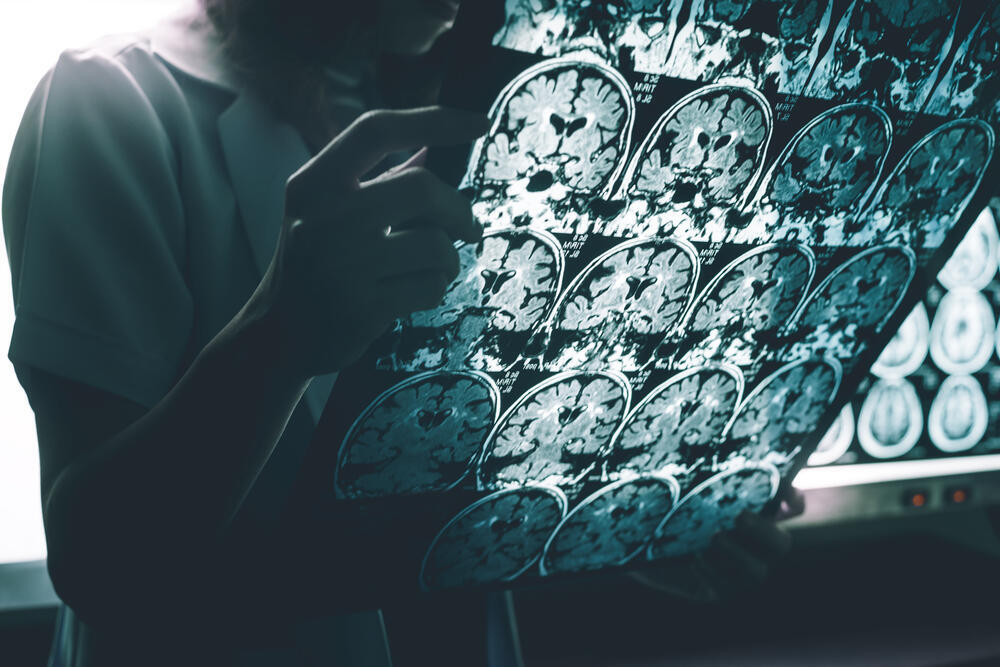Getting your Trinity Audio player ready...
New criteria for diagnosing and characterizing Alzheimer's disease and determining its severity recently announced would no include biological markers in addition to clinical evaluations, akin to how cancer, heart disease, and diabetes are diagnosed.
Prof. David Tanne, outgoing president of the Israel Neurological Association and Director of the Stroke and Cognition Institute at Rambam Health Care Campus, explains: "The new international diagnostic guidelines represent a significant conceptual shift with many implications. Until now, diagnosis relied on cognitive decline and impairment in daily functions, but the new guidelines emphasize that diagnosis is based on the biological process."
Prof. Tanne elaborates, "Now, it is possible to diagnose individuals using biological markers and blood tests, allowing for the identification of the disease process at much earlier stages. It is also possible to diagnose the disease before symptoms appear, meaning when the person feels healthy."
The revised criteria were published by the Alzheimer's Association, an international body dedicated to care, support, and research of the disease, after many years of work in three separate working groups. The criteria now define the disease as a biological process that begins with changes in the brain, even before the onset of memory and thinking difficulties.
According to the Alzheimer's Association, extensive research shows that the progression and expansion of changes in the brain lead to the later appearance of clinical symptoms, such as memory impairment, disorientation, planning or organization problems, and mental confusion, which worsen slowly and gradually. However, the clinical symptoms typically observed in Alzheimer's patients may also be caused by other conditions, so clinical diagnosis alone is insufficient for an accurate characterization of Alzheimer's disease.
Prof. David Tanne states, "This is the beginning of a revolution with two arms: one diagnostic, early diagnosis based on the biological process, and the other therapeutic, advanced medications that have been proven for the first time to slow the progression of the disease in its early stages."
The novelty in publishing the updated international guidelines for diagnosing the disease and determining its different stages lies in combining clinical diagnosis, which can sometimes be inaccurate, with the foundation of diagnosis on the biological process, using biological markers (biomarkers) in cerebrospinal fluid (CSF) and precise blood tests.
"We are in the midst of an exciting, dynamic, and changing period in the diagnosis and treatment of Alzheimer's disease," Prof. Tanne says. "I would define it as the beginning of a revolution with two arms: one diagnostic, early diagnosis based on the biological process using biomarkers, including precise blood tests. The second therapeutic, advanced medications that have been proven for the first time to slow the progression of the disease in its early stages."
He adds, "The diagnostic issue is related to the important second revolution, the therapeutic one. There are currently new advanced drug treatments for Alzheimer's disease, suitable only for patients in a very early stage of the disease and when their diagnosis is biological. These treatments are still not included in Israel's health basket, but they are already available in the country."
Regarding the importance of diagnosing the biological process alongside clinical diagnosis, he explains that "it is important to diagnose the disease at an early stage. Therefore, when symptoms that the person or their family notice begin, they should seek an evaluation by a specialist. After the evaluation, it is possible to check and diagnose based on biological markers if it is indeed Alzheimer's and if the patient is suitable for the new drug treatments."
 Prof. David TannePhoto: Rambam Health Care Campus
Prof. David TannePhoto: Rambam Health Care CampusProf. Tanne mentions that at this stage, the diagnosis of the biological process will be performed alongside clinical diagnosis among people who have developed symptoms. However, he noted that "it is also possible to test people who are defined as at risk and have not developed symptoms, such as those who have a parent or close relative with Alzheimer's and are therefore at increased risk." However, he clarified that not all of these individuals will necessarily receive drug treatment at the stage they are in.
"The diagnosis of the biological process complements the clinical medical assessment," he clarified. "The professional's foundation is very important, and when necessary, the patient will be referred for marker tests that can be checked in cerebrospinal fluid and also in blood tests." Prof. Tanne emphasized, in conclusion, that "we must always remember that there is a lot that can be done to maintain brain health. Each of us at any age should remember this and do many things to maintain healthy brain vessels and a healthy brain. Just as we maintain heart health, we should maintain brain health."
Prof. Joab Chapman, Professor or Neurology and Neurosurgery, added that "the importance of publishing the new global criteria for diagnosing Alzheimer's disease cannot be overstated. A bridge has effectively been laid between groundbreaking scientific research on diagnosing the disease and innovative clinical treatment." According to him, "We have practically moved from describing general characteristics of memory disorders, spatial orientation, and other cognitive symptoms, to a deeper understanding of the disease and mapping its causes."
"Certainly, this process will lead to better treatment for patients," emphasized Prof. Chapman. "In many research laboratories around the world, including in Israel, top minds are working on cracking the disease and finding medication to reverse it. This is an exciting time for us neurologists. Brain medicine is rapidly changing before our eyes."



